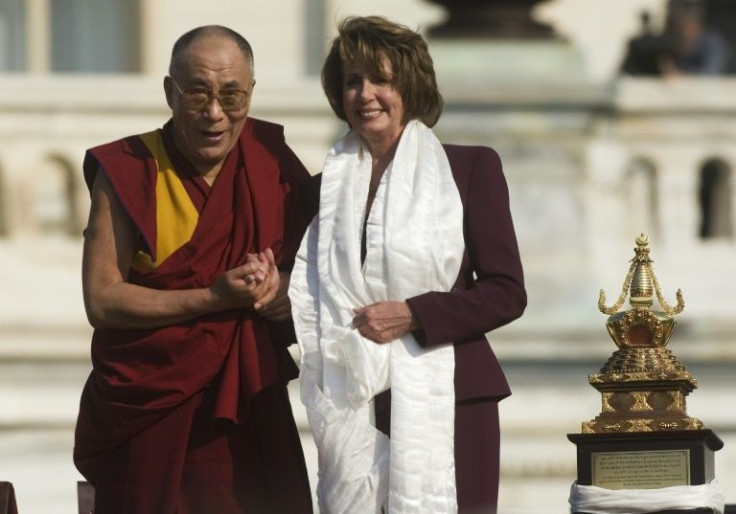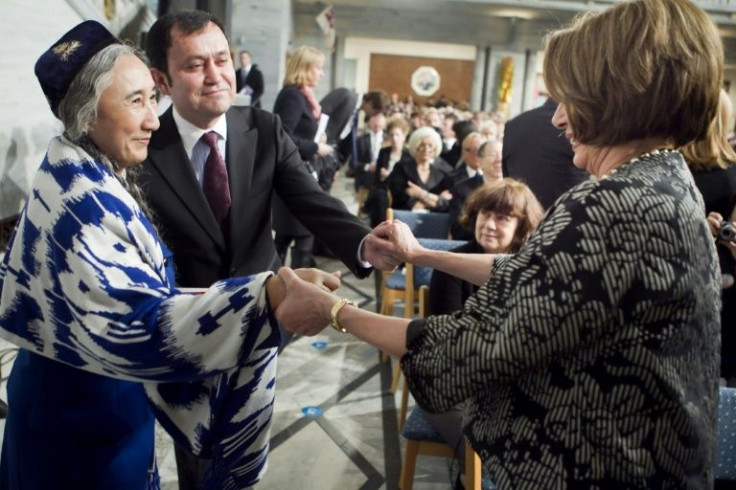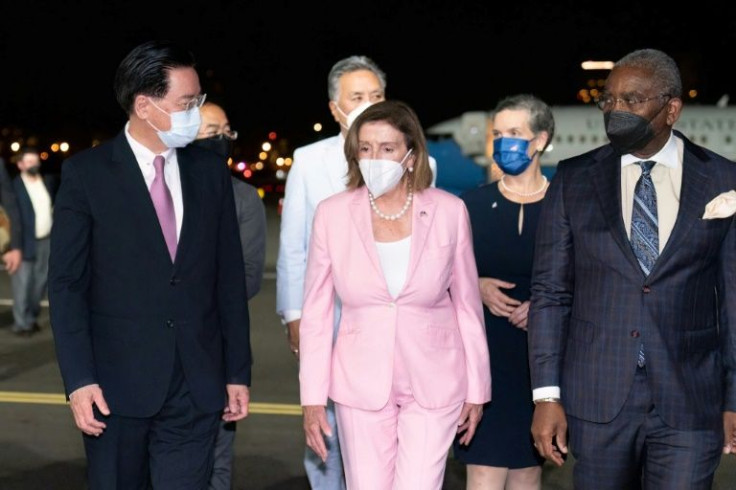Pelosi: A Long History Of Provoking China Over Human Rights
US House Speaker Nancy Pelosi has a long history of riling Beijing over democracy and human rights, whether by unveiling a banner on Tiananmen Square or in regular meetings with Tibet's exiled spiritual leader, the Dalai Lama.
Pelosi, the country's most powerful lawmaker, stoked fresh tensions in US-China relations Tuesday when she flew into Taiwan, the highest-ranked elected US official to visit the island in 25 years.
But it was only the most recent act to nettle China by the powerful 82-year-old lawmaker, who is second in line to the US presidency. Pelosi has taken every opportunity over a long career to goad Beijing for what she calls a dismal record on human rights and democracy.
As a junior congresswoman, just two years into her career, she was highly vocal about the June 4, 1989, Tiananmen crackdown on pro-Democracy demonstrators in Beijing.

She called it a shocking "massacre" and accused Chinese security services of conducting "secret executions."
"The human rights of the people in China are not an internal matter. They are of concern to people all over the world," she declared.
Since then, Pelosi has regularly needled Beijing's leadership -- frequently meeting political and religious dissidents, as well as the Dalai Lama, and labelling the treatment of Muslim minorities in the Xinjiang region "genocide."
Two years after the Tiananmen crackdown, she visited China with two other members of Congress on an official invitation.

She irked her hosts by visiting the famed square, placing flowers at a martyrs memorial with a banner that read: "To those who died for democracy in China."
After Chinese police briefly detained the American legislators, she told reporters: "We've been told for two days now that there is freedom of speech in China. This does not conform to what we were told."
Her actions are good politics -- she represents San Francisco, home to a large Chinese population, which in the 1980s was dominated by people who had fled communist China, or had roots in the much freer Taiwan and Hong Kong.

But after 35 years, Pelosi has proven herself a consistent defender of human rights in China, and shows little regard for how her actions impact diplomatic ties between Washington and Beijing.
She has regularly opposed China's hosting of the Olympics, and has sought tough trade treatment of the country due to its rights record.
In 2010, she traveled to Oslo for the awarding of the Nobel Peace Prize to imprisoned Chinese dissident Liu Xiaobo.
Every year in Congress she makes note of the Tiananmen incident, highlighting the violence waged on the Chinese people by the People's Liberation Army, and the lengthy imprisonment of dissidents.
"We want them to know that in the Congress of the United States, we know about them, we care about them," she said in 2009, the 20th anniversary.
One of the first foreign trips she took after rising to the House speaker position was leading a Congressional delegation to Dharamsala, India to meet the Dalai Lama, whom she had received in Washington a year earlier.
The devout, progressive Catholic said she was there to shine "the bright light on the truth of what is happening in Tibet," where Beijing is accused of severely repressing local culture.
"If freedom-loving people throughout the world do not speak out against China's oppression in China and Tibet, we have lost all moral authority to speak on behalf of human rights anywhere in the world," she said.
President Joe Biden, normally a close ally of Pelosi, reportedly hoped in recent weeks to deter her trip to Taiwan, to avoid stirring China's anger while the US is deeply embroiled in the Russia-Ukraine war.
But Pelosi stuck to her guns. She wrote in the Washington Post that since her first visit to Tiananmen Square, "Beijing's abysmal human rights record and disregard for the rule of law continue, as President Xi Jinping tightens his grip on power."
She pointed to the harsh political crackdown in Hong Kong, "genocide" in Xinjiang and continued repression in Tibet.
"We take this trip at a time when the world faces a choice between autocracy and democracy," she said.
"As Russia wages its premeditated, illegal war against Ukraine, killing thousands of innocents -- even children -- it is essential that America and our allies make clear that we never give in to autocrats."
© Copyright AFP 2024. All rights reserved.





















